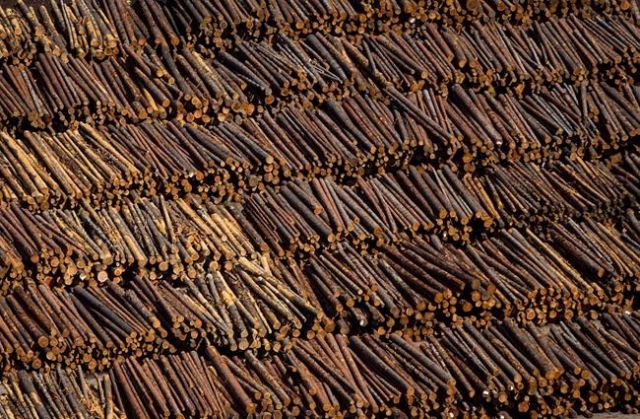
Interfor Corp.’s share price was trading down more than 10 per cent Friday as the company missed earnings expectations amid volatile lumber prices.
“The dominating feature of the third quarter this year was the drop in lumber prices that began in late May and early June and continued unabated through the third quarter and into the fourth quarter,” said company chief executive Duncan Davies.
He said volatility this year has been unprecedented as logistical constraints and other factors rapidly drove western spruce composite prices up US$145 in the first five months of the year only to plunge US$280 since to a low of US$296 per thousand board feet.
“In our view, the current state of the lumber market makes little sense,” said Davies.
“The drop we’ve experienced in the last few months is more of an overreaction to an overreaction that occurred earlier this year.”
Prices appear to have bottomed though, said Davies, with some price gains recently.
Meanwhile, cost inflation in labour and materials has led Interfor to indefinitely shelve a new sawmill it was looking to build in the U.S. south, he said.
“Over the last number of months, it became, it’s become readily apparent to us that equipment lead times, contractor services, steel prices and a number of other cost factors were increasing to the point where we weren’t comfortable that we could generate the kind of returns that we felt were necessary.”
Davies said the price drop in the third quarter put pressure on earnings, though company profits of $28.1 million, or 40 cents per share were still up from earnings of $16.8 million or 24 cents per share for the same quarter last year.
Adjusted net earnings came in slightly higher at $28.24 million but still 40 cents per share, while analysts had expected earnings of $43.5 million or 44 cents per share according to Thomson Reuters Eikon.
The company’s share price was trading down $1.81 or 11.1 per cent at $14.48 in mid-afternoon trading on the Toronto Stock Exchange.
Interfor says it produced 14 million board feet less than the previous quarter after it instituted preventative downtime in the U.S. south ahead of hurricane Florence and production dropped in the U.S. northwest.
B.C. production rose by nine million board feet, but will see a planned 20-per-cent drop in production in the fourth quarter as the company cuts back due to declining lumber prices and higher log costs.


